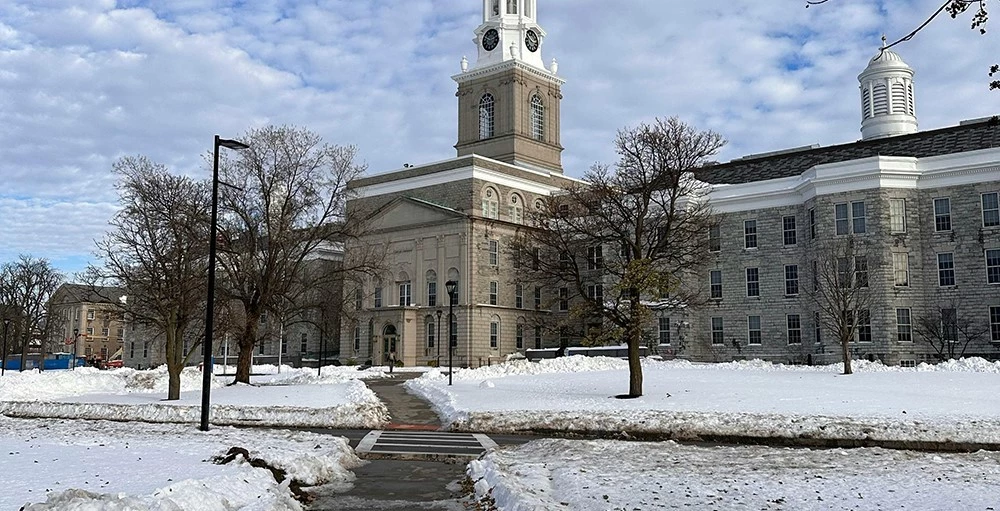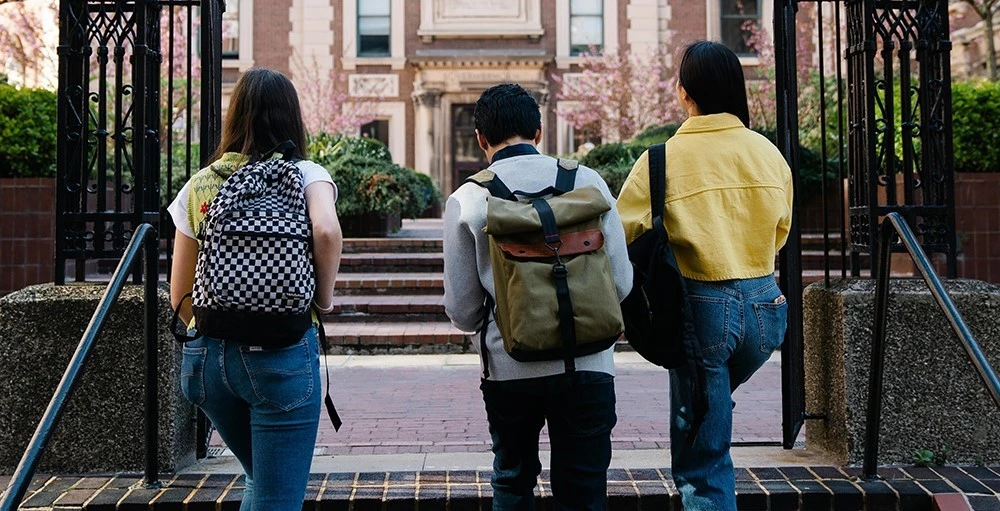Everyone is talking about the pandemic and how it has affected college students financially, but students were having financial difficulties far before COVID-19. Several studies¹ ² have found that:
- 50 percent of students worry about paying monthly expenses
- 62 percent worry about paying for tuition
- Up to 40 percent struggle to eat
- 13 percent are homeless
According to a recent study by the Global Financial Literacy Excellence Center (GFLEC)³, students with these issues are not financially resilient.
They don’t meet the definition of financial wellness – which is having the knowledge, ability, and desire to make intelligent financial decisions and having the capacity to live a happy life within one’s means.
Unfortunately, students who are not financially well often do not do well in school. Many studies over the years have shown that financial issues cause students to neglect their studies, get poorer grades, drop classes, and drop out of school without earning a degree.
That’s why colleges and universities offer students financial wellness programs to help their students achieve financial resilience and wellness.
Definition of Financial Resilience
Financial resilience is the ability to handle life events that can impact a student’s financial standing. These can include:
- Family unemployment (student, spouse, parent, etc.)
- Divorce (student, parent)
- Health issues (student, spouse, parent)
- Economic downturn
- Large-scale events such as COVID-19
When something of this magnitude happens, students lacking financial resilience do not have the resources, skills, or knowledge they need to adapt.
Typically, those lacking financial resilience do not have adequate financial resources, incur too much debt, and have poor money management skills. Because of this, when an unexpected life event occurs, students will make poor choices, such as:
- Neglecting to pay bills
- Paying the minimum credit card payment rather than the balance
- Using a high-risk loan such as a car title loan or pawnshop
- Neglecting long-term savings
Which Students Are Affected?
You might assume that students coming from high-income families are financially resilient. However, having adequate resources is just one piece of the resilience puzzle.
If students with high financial resources also have high debt and poor financial habits, they will not be financially resilient. On the other hand, students with limited resources but low debt and a strong understanding of financial management, may be quite resilient.
The GFLEC study looked at various subgroups of the population and found that some groups were more vulnerable than others. These include:
- Women
- Minorities
- Those between 30 and 44
- Those who do not graduate with a bachelor’s degree
All these groups had issues with high debt, cash flow problems, and a lack of financial skills and knowledge.
How Financial Wellness Programs Can Help
By offering a holistic financial wellness program, you can help your students become financially resilient.
What is a holistic financial wellness program? It’s one that meets all the needs of your students regardless of their race, socioeconomic status, or age.
- Physical needs: Shelter, food
- Mental needs: Financial stress
- Emotional needs: Quality of life, interconnection of financial state and personal life
- Spiritual needs: Motivation, meaning, purpose, community
Here are four things a holistic financial wellness program can do to increase your students’ financial resilience.
1. Target Those Who Need the Help
When you know which students are more vulnerable to financial difficulties, you can target communication about specific financial topics to this portion of your student population.
Based on the GFLEC study, you might create financial wellness campaigns specifically designed for women, non-traditional students, minorities, and more.
Additionally, a platform like iGrad offers personalization for each participant. Students can take the financial assessment to determine how they are doing and then receive a specific plan to help them become financially strong.
2. Teach How to Budget
Those who are financially resilient understand how to budget, making sure they have enough money coming in to meet their expenses going out. A financial wellness program like iGrad offers budgeting tools that will help students with this aspect of resiliency:
- Your Money Personality
- Budget Tool
- Daily Expense Calculator
3. Teach How to Use and Pay Down Debt
Your students may not be able to avoid debt completely while getting a degree, but they can learn how to use debt wisely and the best way to pay it back. iGrad offers students tools and courses to help:
- Getting Out of Debt (And Avoiding It in the Future)
- Repaying Your Student Loans
- Staying on Track with Student Loans While in School
- Using Credit Cards Responsibly
- Student Loan Snapshot
- Scholarship Search Tool
4. Encourage More Savings
Financially resilient students are those who have the necessary resources to handle a small financial crisis, such as a car problem or the loss of a week’s income due to exams. We have seen that having an appropriate level of emergency savings can have a significant impact on stress and student success rates.
The best way to have the necessary resources is to help your students learn about saving – both emergency savings and saving for the future.
A holistic financial wellness program like iGrad can teach your students about:
- Emergency savings
- Short-term and long-term goal savings
- Why an early start to retirement saving makes sense
When your students are financially resilient, everyone wins. Your students can focus on their studies rather than their finances. Your institution can flourish as more students graduate with degrees. Offering a student financial wellness program is the key.
If you're interested in implementing this strategy, here are some best practices to create, launch and promote a financial literacy program at your college.
1 - https://news.osu.edu/70-percent-of-college-students-stressed-about-finances/
2 - https://scholarshipamerica.org/blog/financial-stress-prevents-college-students-from-graduating-what-can-we-do/
3 - https://gflec.org/research/?item=27354








